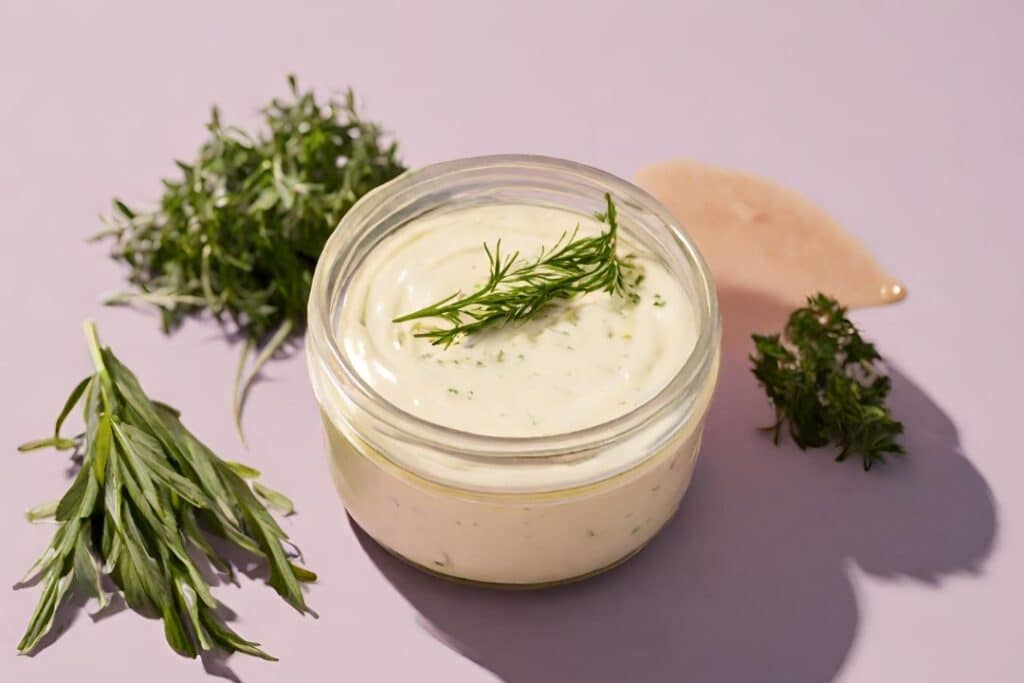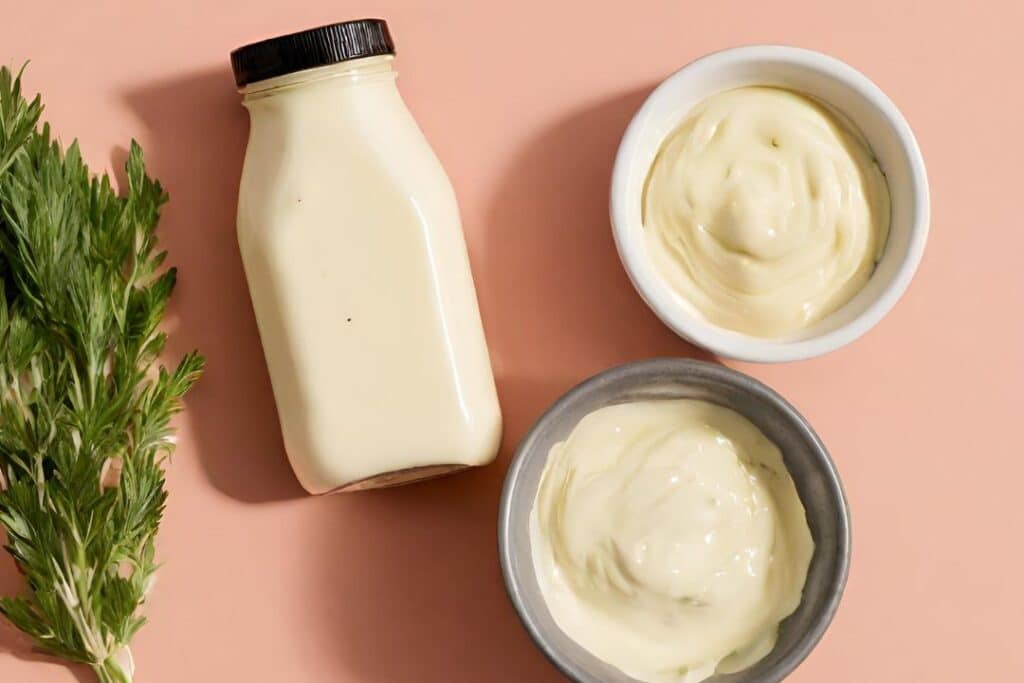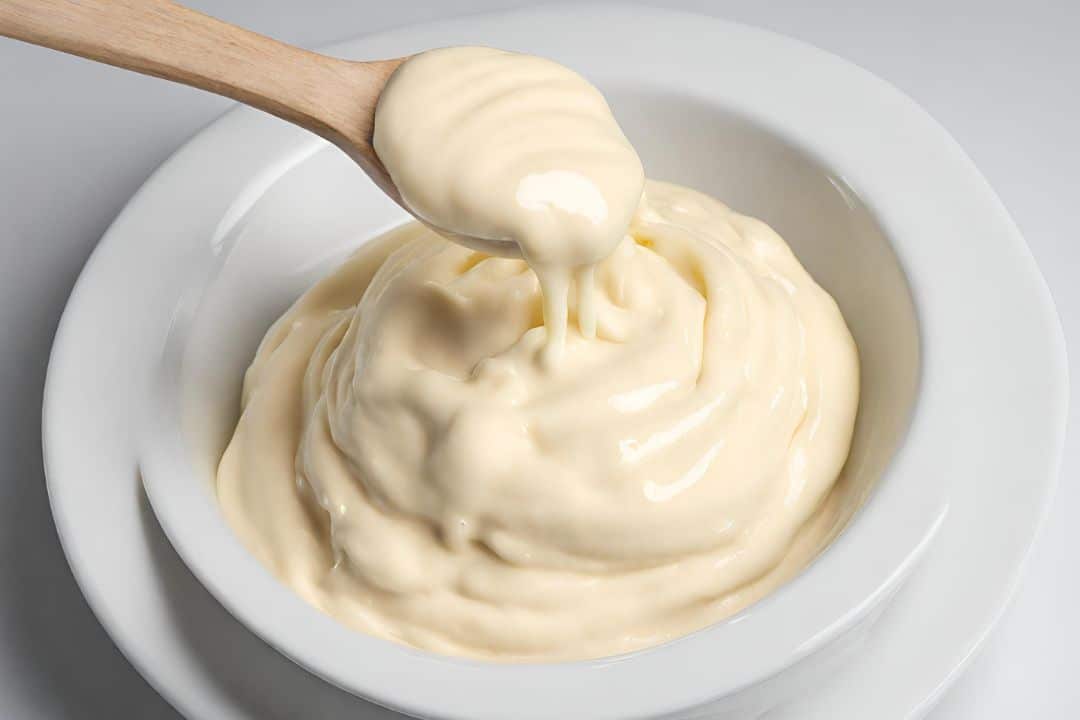Mayonnaise is a popular condiment that can be found in most households. It is a versatile spread that can be used in sandwiches, dips, dressings, and more. However, like all food products, mayonnaise has a limited shelf life. If you’re wondering how long mayonnaise lasts, this article will provide you with all the information you need.
To start with, it’s important to know that the shelf life of mayonnaise depends on whether it’s opened or unopened. Unopened mayonnaise can last for up to a year when stored in the refrigerator. However, once opened, the shelf life decreases significantly. Opened mayonnaise can last for 2-3 months when stored properly in the refrigerator.
It’s also important to note that homemade mayonnaise has a shorter shelf life compared to store-bought mayonnaise. Homemade mayonnaise can only last up to a week in the refrigerator. This is because it doesn’t contain any preservatives or stabilizers that can prolong its shelf life. Now that you have a basic understanding of the shelf life of mayonnaise, let’s dive deeper into the topic.
Factors Affecting Mayonnaise Shelf Life

Mayonnaise is a popular condiment that is used in a variety of dishes. However, it is important to be aware of the factors that can affect the shelf life of mayonnaise to ensure that it is safe to consume. Here are some key factors that can affect the shelf life of mayonnaise:
1. Storage Temperature
The storage temperature is one of the most important factors that can affect the shelf life of mayonnaise. According to Fitibility, commercially-prepared mayonnaise is shelf-stable and can safely sit in a cool, dry area, out of the heat and moisture. Ideally, you should store mayonnaise at a temperature between 35°F (1.7°C) and 40°F (4.4°C). This temperature range helps inhibit bacterial growth and keeps the mayonnaise fresh for a longer period. Avoid storing it at room temperature, as this can accelerate spoilage.
2. Type of Mayonnaise
The type of mayonnaise can also affect its shelf life. For example, homemade mayonnaise has a shorter shelf life compared to commercially-prepared mayonnaise. According to Izzy Cooking, homemade mayonnaise can only last up to a week in the refrigerator. On the other hand, commercially-prepared mayonnaise has a long shelf life, ranging from 2 to 3 months after the expiry date.
3. Exposure to Air and Light
Exposure to air and light can also affect the shelf life of mayonnaise. When mayonnaise is exposed to air and light, it can cause the oil in the mayonnaise to become rancid, which can affect the taste and quality of the mayonnaise. To prevent this from happening, make sure to store mayonnaise in an airtight container and keep it in a cool, dark place.
4. Cross-Contamination
Cross-contamination is another factor that can affect the shelf life of mayonnaise. When using mayonnaise, make sure to use clean utensils and avoid double-dipping to prevent the spread of bacteria. Additionally, make sure to refrigerate mayonnaise immediately after use to prevent bacterial growth.
By keeping these factors in mind, you can ensure that your mayonnaise stays fresh for as long as possible.
Unopened Mayonnaise Shelf Life

Mayonnaise is a popular condiment that can be found in most households. It is a versatile ingredient that can be used in a variety of dishes, from sandwiches to salads. However, like all food items, mayonnaise has a shelf life, and it is important to know how long it can last to ensure that it is safe to eat.
An unopened jar of mayonnaise can last for up to 3-4 months beyond its “best by” date if stored properly. The “best by” date is an indication of when the product is at its freshest, but it does not mean that the product is no longer safe to consume after that date. As long as the jar is unopened and has been stored in a cool, dry place, the mayonnaise should still be safe to eat.
If you want to extend the shelf life of your unopened mayonnaise, it is best to store it in the refrigerator. Keeping it in the fridge can help to slow down the natural deterioration of the ingredients, which can help to keep the mayonnaise fresher for longer.
It is important to note that the shelf life of mayonnaise can vary depending on the brand and the ingredients used. Some mayonnaise brands may have preservatives added to them that can help to extend their shelf life, while others may not. Therefore, it is always best to check the label for the “best by” date and any other storage instructions provided by the manufacturer.
To summarize, an unopened jar of mayonnaise can last up to 3-4 months beyond its “best by” date if stored properly. Storing it in the refrigerator can help to extend its shelf life. However, it is always best to check the label for specific instructions provided by the manufacturer.
Opened Mayonnaise Shelf Life
Once you open a jar of mayonnaise, its shelf life will be shorter than when it was unopened. According to Chefs Resource, commercially produced mayonnaise has a shelf life of 2 to 3 months after the expiry date when unopened. However, once you open the jar, the shelf life can vary depending on the storage temperature.
To maximize the shelf life of opened mayonnaise, it is essential to store it properly. You should keep the opened jar of mayonnaise refrigerated and tightly covered at all times. This will help prevent the growth of harmful bacteria that can cause foodborne illnesses.
According to StillTasty, opened mayonnaise can last up to 2 to 3 months after the date on the package when stored properly. However, it is best to use your judgment and common sense when determining if opened mayonnaise is still good to eat. If the mayonnaise has an unusual smell, taste, or appearance, it is best to discard it.
It is worth noting that homemade mayonnaise has a shorter shelf life than commercially produced mayonnaise. According to Izzy Cooking, homemade mayonnaise can last up to one week when stored in the refrigerator.
To summarize, opened mayonnaise has a shorter shelf life than unopened mayonnaise. You should store opened mayonnaise in the refrigerator and tightly cover it to prevent the growth of harmful bacteria. It can last up to 2 to 3 months after the date on the package when stored properly, but it is best to use your judgment when determining if it is still good to eat.
Proper Mayonnaise Storage
When it comes to storing mayonnaise, proper storage is essential to ensure that it lasts as long as possible. Here are some tips on how to store mayonnaise properly:
Refrigerator Storage
Refrigeration is the best way to store mayonnaise. Once you open the jar, make sure to keep it in the refrigerator at all times. According to Fitibility, an unopened jar of mayonnaise can last up to a year if kept refrigerated throughout. However, once opened, the shelf life of mayonnaise decreases significantly. Exposure to air, moisture, and contaminants can promote the growth of bacteria and spoilage. For this reason, an opened jar of mayonnaise should be consumed within two months.
To ensure that your mayonnaise stays fresh, store it in the back of the refrigerator, where the temperature is the coldest. Avoid storing it on the door, where the temperature fluctuates every time you open and close the refrigerator.
Freezer Storage
If you have a large amount of mayonnaise that you won’t be able to consume within two months after opening, you can freeze it to extend its shelf life. However, it’s important to note that freezing mayonnaise can change its texture and consistency, so it may not be suitable for all recipes.
To freeze mayonnaise, transfer it to an airtight container or freezer bag and label it with the date. Mayonnaise can be frozen for up to two months. When you’re ready to use it, thaw it in the refrigerator overnight. Once thawed, give it a good stir to help restore its texture.
In summary, storing mayonnaise properly is crucial to ensure that it stays fresh and safe to consume. Refrigeration is the best way to store mayonnaise, and it should be consumed within two months after opening. If you have a large amount of mayonnaise that you won’t be able to consume within two months, freezing it is an option, but it may alter its texture.
Signs of Spoiled Mayonnaise
Mayonnaise is a perishable food item, and it can go bad if not stored properly. Here are some signs that indicate your mayonnaise has gone bad:
- Off-smell: If your mayonnaise has an unusual or sour smell, it’s a clear sign that it has gone bad. Fresh mayonnaise should have a neutral smell.
- Off-color: If your mayonnaise has changed color from white to yellow, it’s a sign that it has gone bad. Fresh mayonnaise should be white in color.
- Separation: If your mayonnaise has separated into liquid and solids, it’s a sign that it has gone bad. Fresh mayonnaise should be smooth and creamy.
- Mold: If you see mold growing on the surface of your mayonnaise, it’s a clear sign that it has gone bad. Discard the entire jar immediately.
- Expired date: If your mayonnaise has expired, it’s a sign that it has gone bad. Even if it looks fine and smells okay, it’s not worth the risk of consuming it.
To avoid consuming spoiled mayonnaise, always check the expiration date before buying it and store it in the refrigerator at all times. If you notice any of the above signs, discard the mayonnaise immediately.
Health Risks of Consuming Expired Mayonnaise
Mayonnaise is a popular condiment that is used in a variety of dishes. However, consuming expired mayonnaise can lead to various health risks. Here are some of the health risks associated with consuming expired mayonnaise:
1. Food Poisoning
Mayonnaise is made with eggs, which are a perishable food item. When mayonnaise is left at room temperature for too long, it becomes a breeding ground for harmful bacteria like salmonella and listeria. Consuming expired mayonnaise can cause food poisoning, which can lead to symptoms like stomach cramps, diarrhea, and vomiting.
2. Allergic Reactions
Mayonnaise contains vinegar, which can cause allergic reactions in some people. Consuming expired mayonnaise can increase the risk of allergic reactions, especially if the mayonnaise has been contaminated with bacteria or other harmful substances.
3. Changes in Texture and Flavor
Expired mayonnaise can develop a sour or rancid smell, taste, and texture. Consuming expired mayonnaise can lead to an unpleasant taste and texture, which can ruin the taste of your food.
To avoid these health risks, it is important to store mayonnaise properly and check the expiration date before consuming it. If you notice any signs of spoilage, such as an off smell or appearance, it is best to discard the mayonnaise.
If you experience any symptoms of food poisoning or allergic reactions after consuming expired mayonnaise, seek medical attention immediately.
It is always better to be safe than sorry when it comes to consuming expired mayonnaise. Stay informed and protect your health by following the guidelines for storing and consuming mayonnaise. For more information, check out The Spruce Eats.
Tips to Extend Mayonnaise Shelf Life
Mayonnaise is a condiment that can add flavor to your sandwiches, salads, and dips. However, it has a limited shelf life, and it can go bad quickly if not stored properly. Here are some tips to extend the shelf life of your mayonnaise:
- Store it in the refrigerator: Mayonnaise should be stored in the refrigerator at all times. It should not be left out at room temperature for more than 2 hours. This is because bacteria can grow rapidly in warm temperatures, causing the mayonnaise to spoil.
- Keep it covered: When storing mayonnaise in the refrigerator, make sure to keep it covered. This will prevent air and moisture from getting in, which can cause the mayonnaise to spoil faster.
- Use clean utensils: When using mayonnaise, always use clean utensils to prevent contamination. Do not use the same spoon or knife that you used to spread mayonnaise on your sandwich to dip it back into the jar.
- Do not add water: Adding water to mayonnaise can cause it to spoil faster. If your mayonnaise is too thick, you can add a little bit of vinegar or lemon juice to thin it out.
- Check the expiration date: Always check the expiration date on your mayonnaise before using it. If it has expired, do not use it. Expired mayonnaise can cause food poisoning.
By following these tips, you can extend the shelf life of your mayonnaise and enjoy it for a longer period of time.
Frequently Asked Questions
How long can mayonnaise last unrefrigerated?
Mayonnaise should not be left unrefrigerated for an extended period of time. It is recommended that you store it in the refrigerator at all times. Leaving mayonnaise unrefrigerated can cause it to spoil quickly and may lead to food poisoning.
What is the shelf life of unopened mayonnaise?
Unopened mayonnaise has a longer shelf life compared to opened mayonnaise. According to Izzy Cooking, an unopened jar of mayonnaise is shelf-stable for 3-4 months after its best by date. However, it can last for up to a year if left unopened and kept refrigerated throughout.
How long does refrigerated mayonnaise last?
Refrigerated mayonnaise can last for up to 2 months after the best by date. However, the shelf life of mayonnaise can vary depending on the brand and how it has been stored. It is important to check for any signs of spoilage, such as a strange odor or discoloration, before consuming refrigerated mayonnaise.
How long is Hellman’s mayonnaise good after opening?
According to Insanely Good Recipes, Hellman’s mayonnaise can last for up to 2 months after opening if kept refrigerated. However, it is important to check for any signs of spoilage before consuming.
Can you use mayonnaise past its expiration date?
It is not recommended to use mayonnaise past its expiration date. According to The Cooking Facts, using expired mayonnaise can cause food poisoning and other health problems. It is important to always check the expiration date on the label before using the product.
How long does fresh mayonnaise last in the fridge?
Fresh mayonnaise typically lasts for up to 1 week when stored in the refrigerator. However, the shelf life of fresh mayonnaise can vary depending on the ingredients used and how it has been stored. It is important to check for any signs of spoilage before consuming fresh mayonnaise.

